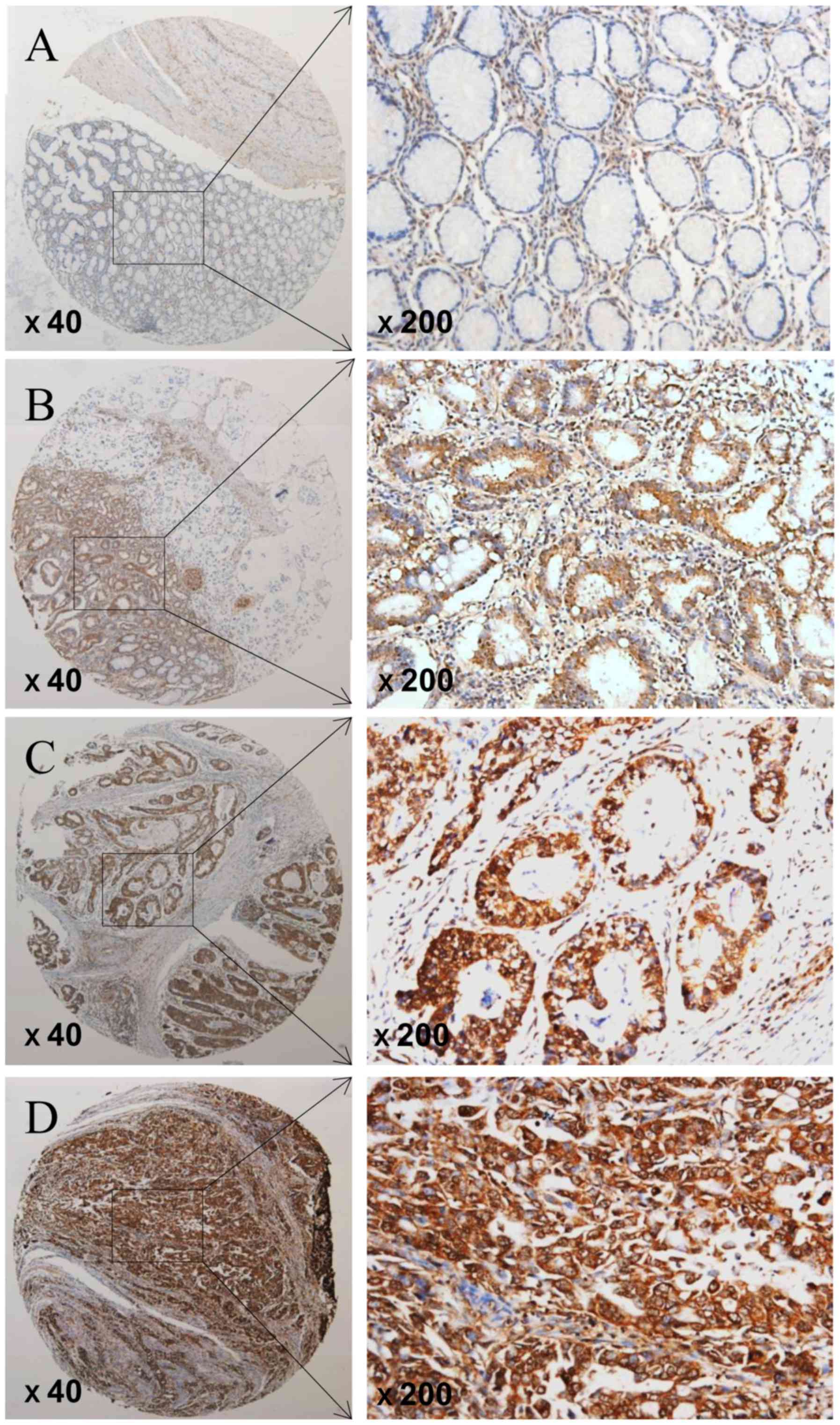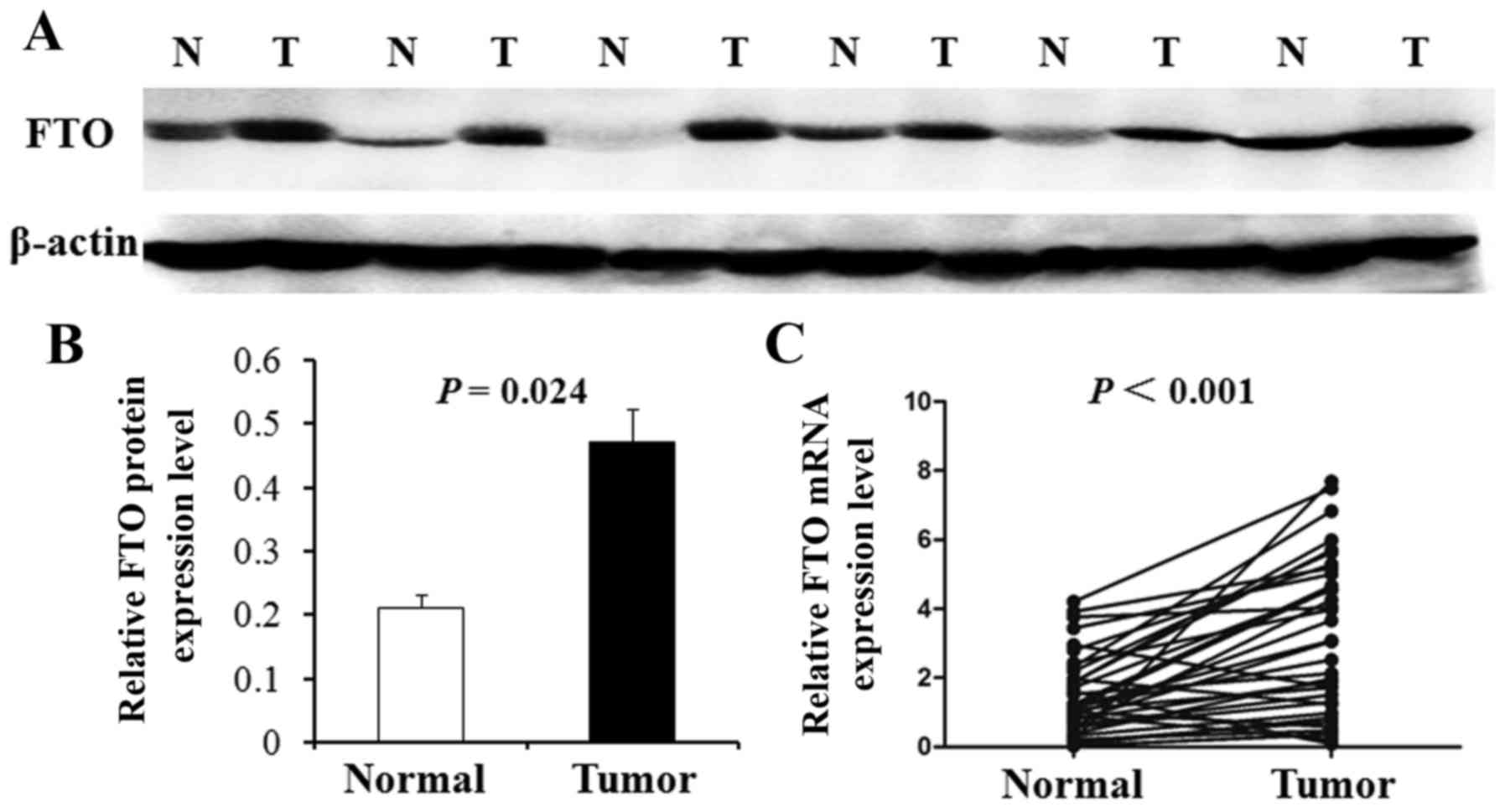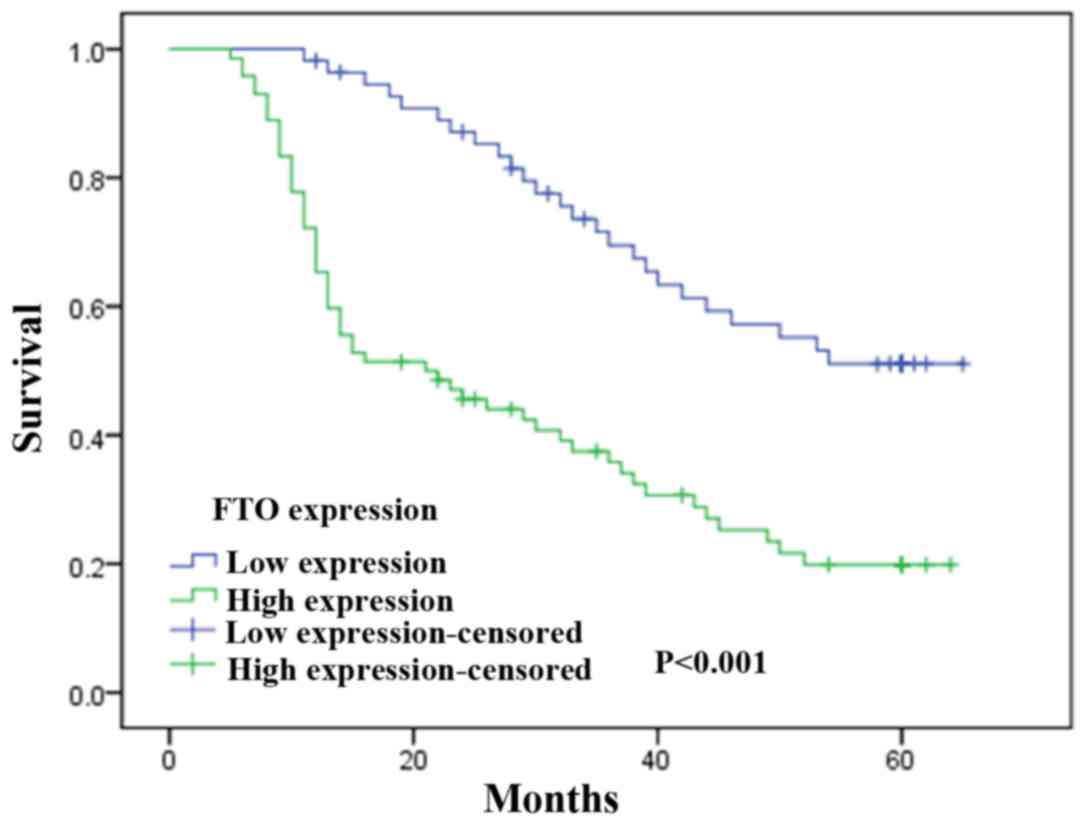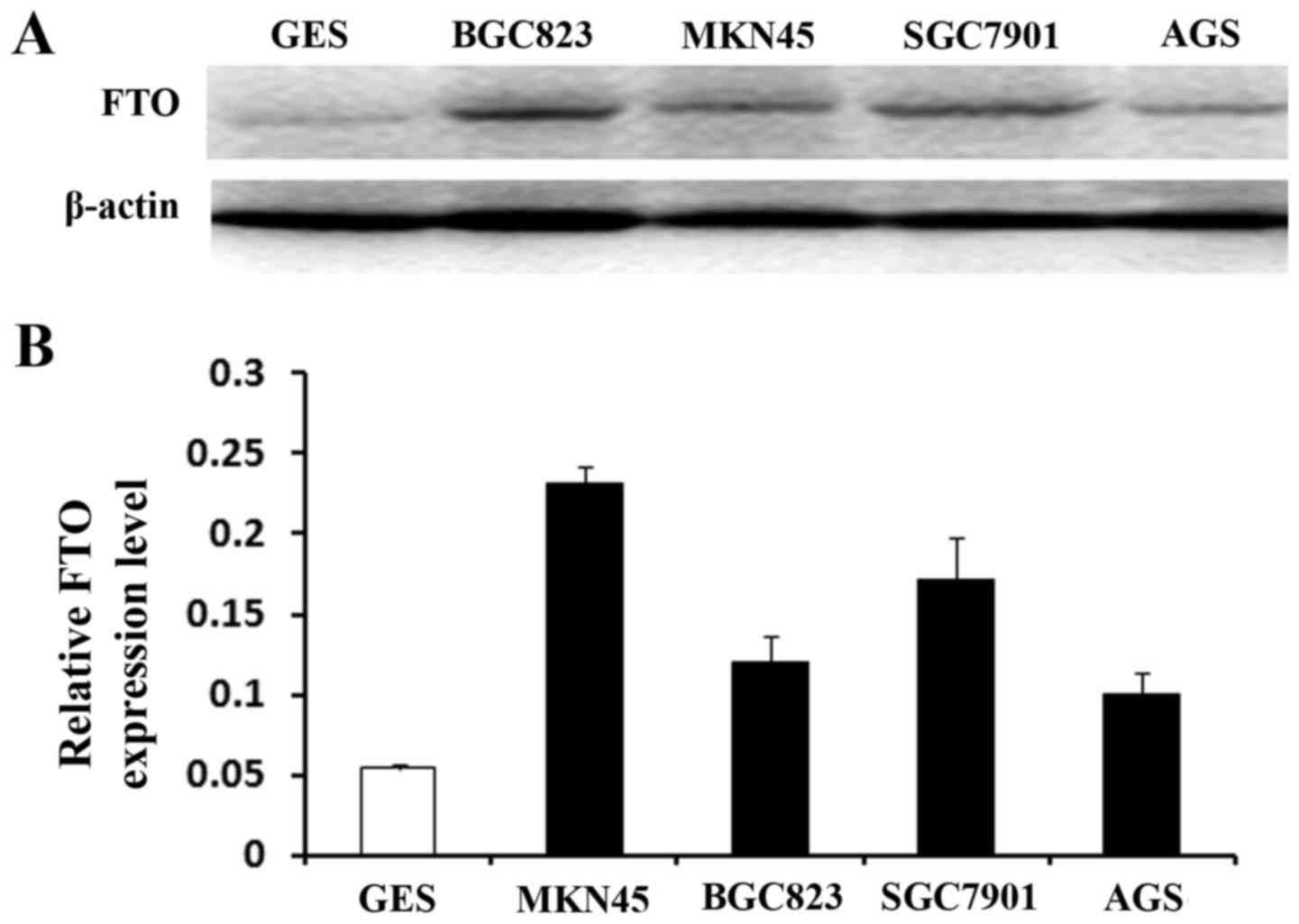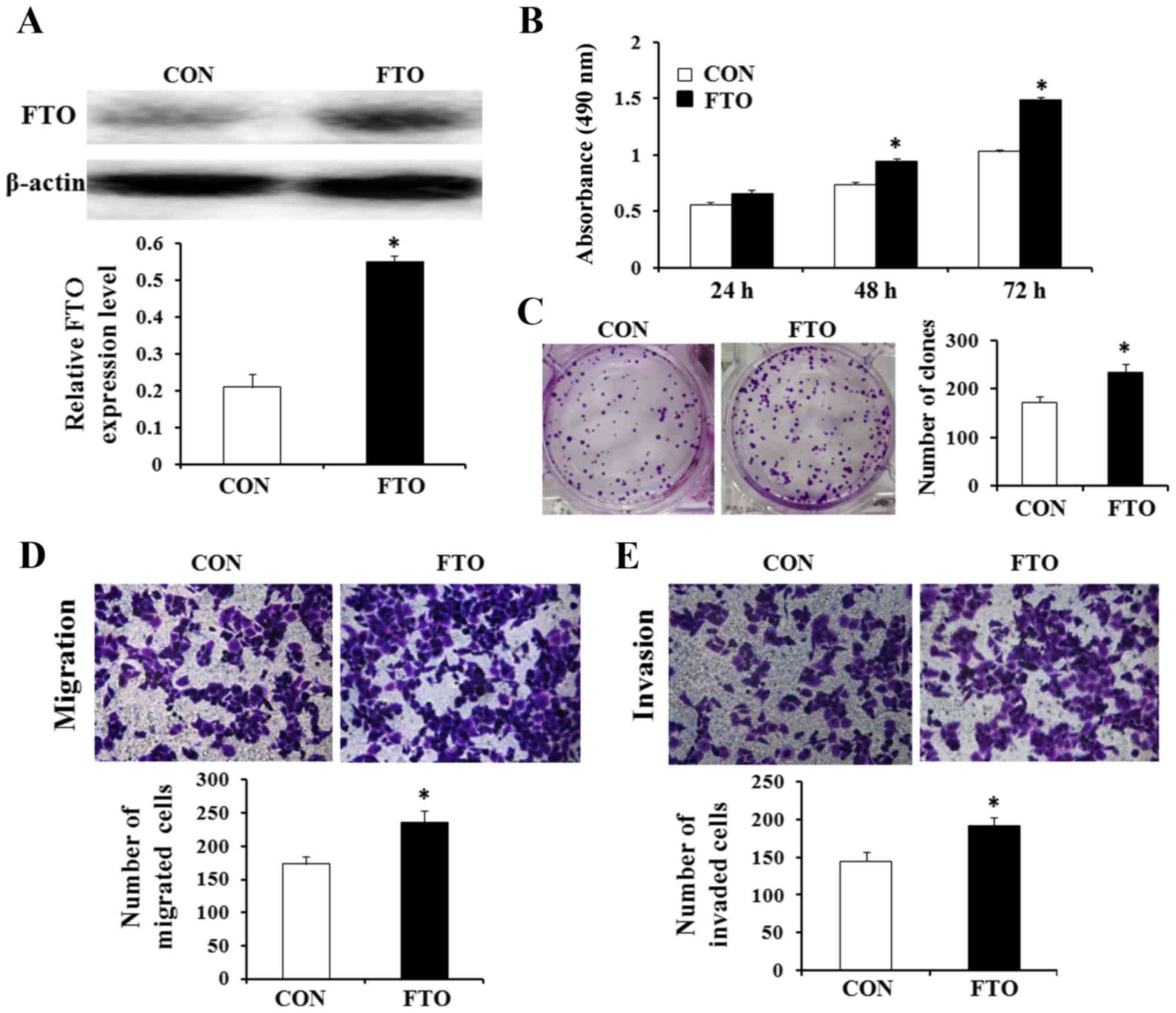|
1
|
Mcguire S: World Cancer Report 2014.
Geneva, Switzerland: World Health Organization, International
Agency for Research on Cancer, WHO Press, 2015. Adv Nutr.
7:418–419. 2016. View Article : Google Scholar : PubMed/NCBI
|
|
2
|
Torre LA, Bray F, Siegel RL, Ferlay J,
Lortet-Tieulent J and Jemal A: Global cancer statistics, 2012. CA
Cancer J Clin. 65:87–108. 2015. View Article : Google Scholar : PubMed/NCBI
|
|
3
|
Jackson CB and Giraud AS: STAT3 as a
prognostic marker in human gastric cancer. J Gastroenterol Hepatol.
24:505–507. 2009. View Article : Google Scholar : PubMed/NCBI
|
|
4
|
Tahara T, Shibata T, Nakamura M, Yamashita
H, Yoshioka D, Okubo M, Yonemura J, Maeda Y, Maruyama N, Kamano T,
et al: Association between IL-17A, −17F and MIF polymorphisms
predispose to CpG island hyper-methylation in gastric cancer. Int J
Mol Med. 25:36–54. 2010. View Article : Google Scholar
|
|
5
|
Compare D, Rocco A and Nardone G: Risk
factors in gastric cancer. Eur Rev Med Pharmacol Sci. 14:302–308.
2010.PubMed/NCBI
|
|
6
|
González CA and Agudo A: Carcinogenesis,
prevention and early detection of gastric cancer: Where we are and
where we should go. Int J Cancer. 130:745–753. 2012. View Article : Google Scholar : PubMed/NCBI
|
|
7
|
Resende C, Ristimäki A and Machado JC:
Genetic and epigenetic alteration in gastric carcinogenesis.
Helicobacter. 15 Suppl 1:34–39. 2010. View Article : Google Scholar : PubMed/NCBI
|
|
8
|
Kurowski MA, Bhagwat AS, Papaj G and
Bujnicki JM: Phylogenomic identification of five new human homologs
of the DNA repair enzyme AlkB. BMC Genomics. 4:482003. View Article : Google Scholar : PubMed/NCBI
|
|
9
|
Peters T, Ausmeier K, Dildrop R and Rüther
U: The mouse Fused toes (Ft) mutation is the result of a 1.6-Mb
deletion including the entire Iroquois B gene cluster. Mamm Genome.
13:186–188. 2002. View Article : Google Scholar : PubMed/NCBI
|
|
10
|
Gerken T, Girard CA, Tung YC, Webby CJ,
Saudek V, Hewitson KS, Yeo GSH, McDonough MA, Cunliffe S, McNeill
LA, et al: The obesity-associated FTO gene encodes a
2-oxoglutarate-dependent nucleic acid demethylase. Science.
318:1469–1472. 2007. View Article : Google Scholar : PubMed/NCBI
|
|
11
|
Jia G, Yang CG, Yang S, Jian X, Yi C, Zhou
Z and He C: Oxidative demethylation of 3-methylthymine and
3-methyluracil in single-stranded DNA and RNA by mouse and human
FTO. FEBS Lett. 582:3313–3319. 2008. View Article : Google Scholar : PubMed/NCBI
|
|
12
|
Frayling TM, Timpson NJ, Weedon MN,
Zeggini E, Freathy RM, Lindgren CM, Perry JR, Elliott KS, Lango H,
Rayner NW, et al: A common variant in the FTO gene is associated
with body mass index and predisposes to childhood and adult
obesity. Science. 316:889–894. 2007. View Article : Google Scholar : PubMed/NCBI
|
|
13
|
Hernández-Caballero ME and Sierra-Ramírez
JA: Single nucleotide polymorphisms of the FTO gene and cancer
risk: An overview. Mol Biol Rep. 42:1–6. 2014.
|
|
14
|
Tan A, Dang Y, Chen G and Mo Z:
Overexpression of the fat mass and obesity associated gene (FTO) in
breast cancer and its clinical implications. Int J Clin Exp Pathol.
8:13405–13410. 2015.PubMed/NCBI
|
|
15
|
Sigurdson AJ, Brenner AV, Roach JA,
Goudeva L, Müller JA, Nerlich K, Reiners C, Schwab R, Pfeiffer L,
Waldenberger M, et al: Selected single-nucleotide polymorphisms in
FOXE1, SERPINA5, FTO, EVPL, TICAM1 and SCARB1 are associated with
papillary and follicular thyroid cancer risk: Replication study in
a German population. Carcinogenesis. 37:677–684. 2016. View Article : Google Scholar : PubMed/NCBI
|
|
16
|
Zhu Y, Shen J, Gao L and Feng Y: Estrogen
promotes fat mass and obesity-associated protein nuclear
localization and enhances endometrial cancer cell proliferation via
the mTOR signaling pathway. Oncol Rep. 42:381–385. 2016.
|
|
17
|
Wadhwa R, Song S, Lee JS, Yao Y, Wei Q and
Ajani JA: Gastric cancer-molecular and clinical dimensions. Nat Rev
Clin Oncol. 10:643–655. 2013. View Article : Google Scholar : PubMed/NCBI
|
|
18
|
Piazuelo MB and Correa P: Gastric cancer:
Overview. Colomb Med. 44:192–201. 2013.PubMed/NCBI
|
|
19
|
Wu HH, Lin WC and Tsai KW: Advances in
molecular biomarkers for gastric cancer: miRNAs as emerging novel
cancer markers. Expert Rev Mol Med. 16:53–62. 2014. View Article : Google Scholar
|
|
20
|
Fan B, Zhang LH, Jia YN, Zhong XY, Liu YQ,
Cheng XJ, Wang XH, Xing XF, Hu Y, Li YA, et al: Presence of
S100A9-positive inflammatory cells in cancer tissues correlates
with an early stage cancer and a better prognosis in patients with
gastric cancer. BMC Cancer. 12:3162011. View Article : Google Scholar
|
|
21
|
Tschritter O, Preissl H, Yokoyama Y,
Machicao F, Häring HU and Fritsche A: Variation in the FTO gene
locus is associated with cerebrocortical insulin resistance in
humans. Diabetologia. 50:2602–2603. 2007. View Article : Google Scholar : PubMed/NCBI
|
|
22
|
Melnik BC: Milk: An epigenetic amplifier
of FTO-mediated transcription? Implications for Western diseases. J
Transl Med. 13:1–22. 2015. View Article : Google Scholar : PubMed/NCBI
|
|
23
|
Raskandersen M, Almén MS and Schiöth HB:
Scrutinizing the FTO locus: Compelling evidence for a complex,
long-range regulatory context. Hum Genet. 134:1–11. 2016.
|
|
24
|
Brown LM: Helicobacter pylori:
Epidemiology and routes of transmission. Epidemiol Rev. 22:283–297.
2000. View Article : Google Scholar : PubMed/NCBI
|















